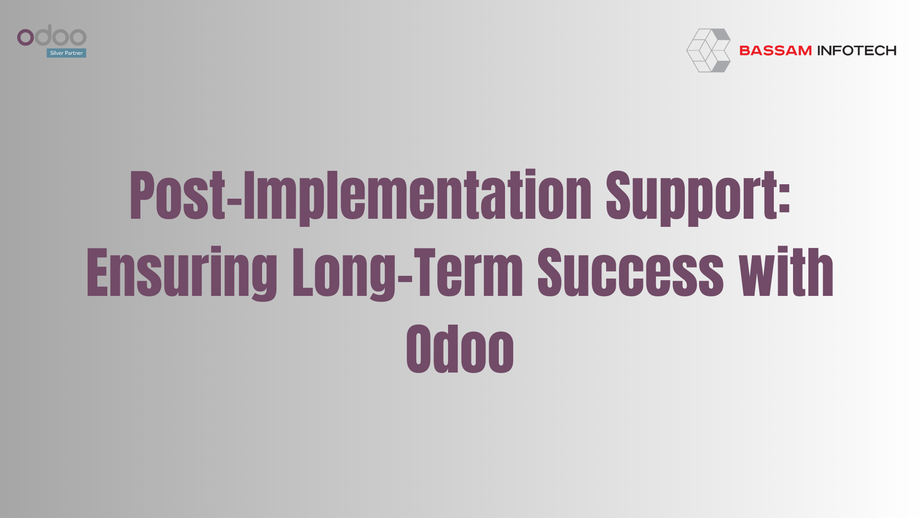Implementing an ERP system like Odoo is a significant step for any organization, but the journey doesn’t end once the system goes live. Post-implementation support is crucial to ensure that your Odoo system continues to meet your business needs, adapt to changes, and deliver long-term value. This article explores the essential elements of post-implementation support for Odoo and how it can help you achieve sustained success.
1. The Importance of Post-Implementation Support
After the initial deployment of Odoo, businesses often encounter various challenges, including user adoption issues, system bugs, or evolving requirements. Effective post-implementation support addresses these challenges, ensuring that the system operates smoothly and continues to align with business objectives. Key benefits include:
- Resolution of Technical Issues: Addressing bugs or technical glitches promptly.
- User Training and Support: Providing ongoing training and assistance to help users fully utilize the system.
- System Optimization: Fine-tuning and configuring the system based on user feedback and evolving needs.
2. Key Components of Post-Implementation Support
-
User Training and Education:
-
Technical Support:
- Help Desk: Access to a support team that can address issues, answer queries, and provide solutions in a timely manner.
- System Monitoring: Proactive monitoring of system performance to identify and address potential issues before they impact operations.
-
System Maintenance and Updates:
- Regular Updates: Applying patches, updates, and new versions to ensure the system remains secure and functional.
- Customization Management: Adjusting customizations and integrations as business processes evolve.
-
Performance Evaluation:
- Regular Reviews: Conducting periodic reviews to assess system performance and identify areas for improvement.
- User Feedback: Gathering feedback from users to understand their experiences and address any challenges they face.
3. Best Practices for Effective Post-Implementation Support
-
Establish Clear Communication Channels:
- Ensure that there are well-defined channels for users to report issues and request support. This includes email, ticketing systems, or dedicated support portals.
-
Create a Support Plan:
- Develop a detailed support plan outlining the processes for handling support requests, including response times and escalation procedures.
-
Invest in Training and Development:
- Regularly invest in training programs to keep your team updated on Odoo’s features and functionalities, and ensure they can effectively utilize the system.
-
Leverage Odoo Partners:
- Collaborate with Odoo-certified partners who can provide expert support and help you navigate complex issues or advanced customizations.
-
Monitor System Performance:
- Implement monitoring tools to track system performance and detect issues early. Use performance metrics to guide optimization efforts.
Effective post-implementation support is critical to the long-term success of your Odoo ERP system. By investing in ongoing training, technical support, system maintenance, and performance evaluation, you can ensure that your Odoo system continues to deliver value, adapt to changing business needs, and support your organization’s growth. Prioritizing post-implementation support will not only resolve immediate issues but also enhance overall system performance, user satisfaction, and business efficiency.
Ready to enhance your Odoo experience with comprehensive post-implementation support? Contact us today to learn how we can help you achieve sustained success with Odoo.

